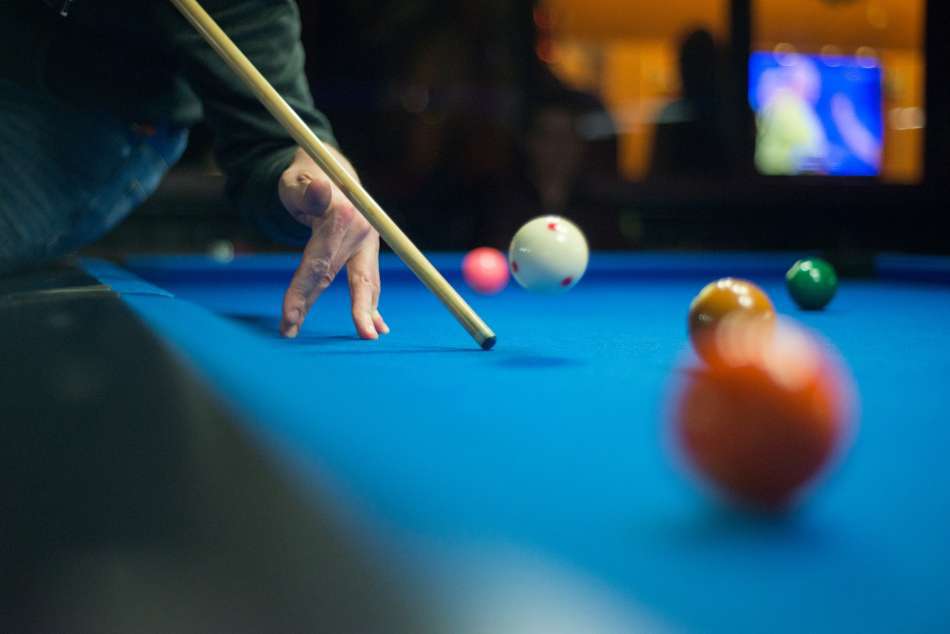Billiards, often regarded as a game of skill and strategy, has long been a subject of debate when it comes to its classification as a sport. Whether you're an avid player or a casual observer, understanding the nuances of this classic pastime can shed light on why it deserves recognition as more than just a recreational activity. Join us as we delve into the history, rules, and competitive nature of billiards to explore whether it truly qualifies as a sport.
The question "is billiard a sport" is not new. For decades, enthusiasts and critics alike have debated its legitimacy in the sporting world. While some argue that billiards lacks the physical exertion typical of traditional sports, others point out the mental agility, precision, and discipline required to excel in the game.
In this article, we will explore both sides of the debate, examine the historical roots of billiards, and highlight its competitive landscape. By the end, you'll have a clearer understanding of why billiards should—or shouldn't—be considered a sport.
Read also:Glen Powell Girlfriend A Comprehensive Guide To His Love Life And Relationships
Table of Contents
- The Rich History of Billiards
- Is Billiard a Sport? Exploring the Classification
- Skills and Techniques in Billiards
- Physical Demands of Playing Billiards
- The Mental Aspect of Billiards
- Competitive Billiards: Tournaments and Championships
- Understanding the Rules of Billiards
- Essential Equipment for Billiards
- Health and Social Benefits of Playing Billiards
- Conclusion: Is Billiard a Sport?
The Rich History of Billiards
Billiards traces its origins back to the 15th century, evolving from an outdoor game similar to croquet. Over time, it transitioned indoors and gained popularity among European aristocracy. By the 18th century, billiards had become a staple in social gatherings, with dedicated tables and rooms being constructed in noble estates.
As the game spread across continents, variations emerged, giving rise to different forms such as snooker, pool, and carom billiards. Each variation introduced unique rules and techniques, further enriching the game's cultural significance.
Today, billiards continues to thrive as both a recreational and competitive activity, with a global following that spans all age groups and demographics.
Historical Evolution of Billiards
From its humble beginnings as a lawn game to its current status as a sophisticated indoor sport, billiards has undergone significant transformations. The introduction of leather cues in the 1800s revolutionized gameplay, allowing players to execute more precise shots. Similarly, the development of standardized rules and equipment has contributed to its widespread acceptance as a legitimate sport.
Is Billiard a Sport? Exploring the Classification
Defining what constitutes a sport is no easy task. The International Olympic Committee (IOC) recognizes sports based on criteria such as physical exertion, skill, and competition. While billiards may not involve the same level of physical activity as football or basketball, it certainly meets other key requirements.
Proponents of billiards as a sport emphasize the mental focus, hand-eye coordination, and strategic thinking involved. These elements, combined with the competitive nature of tournaments, make a compelling case for its inclusion in the sporting realm.
Read also:Hello Kitty The Ultimate Guide To The Iconic Feline Character
Opponents, however, argue that the lack of sustained physical exertion disqualifies billiards from being classified as a sport. They contend that sports should require significant physical effort, which billiards arguably does not.
What Makes a Sport?
According to the IOC, a sport must involve physical activity, skill, and competition. While billiards may not tick all the boxes in terms of physical exertion, it excels in the areas of skill and competition. This raises the question: Should the definition of a sport be expanded to accommodate activities like billiards?
Skills and Techniques in Billiards
Mastery of billiards requires a combination of technical skills and strategic thinking. Players must possess excellent hand-eye coordination, precision, and the ability to anticipate shot outcomes. These skills are honed through practice and experience, making billiards a challenging yet rewarding pursuit.
Key techniques in billiards include:
- Cue ball control
- Spin application
- Positioning for follow-up shots
- Bank shots and angles
Each of these techniques demands practice and dedication, underscoring the level of expertise required to excel in the game.
Developing Precision and Control
Precision is paramount in billiards. Players must learn to control the cue ball's movement with accuracy, ensuring it strikes the object ball at the desired angle and speed. This level of control is achieved through consistent practice and a deep understanding of physics and geometry.
Physical Demands of Playing Billiards
While billiards may not involve the same level of physical exertion as traditional sports, it does require certain physical attributes. Players must maintain proper posture, balance, and stamina during long matches. Additionally, the repetitive nature of the game can lead to muscle strain if proper techniques are not employed.
Research published in the Journal of Sports Sciences highlights the physical demands of billiards, emphasizing the importance of core strength and flexibility in preventing injuries.
Preventing Injuries in Billiards
To minimize the risk of injury, billiards players should focus on strengthening their core muscles and improving flexibility. Stretching exercises and proper technique can help prevent strain and ensure longevity in the game.
The Mental Aspect of Billiards
Billiards is as much a mental game as it is a physical one. Players must possess strong concentration, patience, and the ability to think several steps ahead. Mental toughness is crucial in high-stakes competitions, where a single mistake can cost a player the match.
Psychological strategies such as visualization and mindfulness are often employed by professional players to maintain focus and composure under pressure.
Building Mental Resilience
Developing mental resilience is key to success in billiards. Players can enhance their mental game through techniques such as meditation, deep breathing, and positive self-talk. These practices help reduce anxiety and improve performance during critical moments.
Competitive Billiards: Tournaments and Championships
Billiards boasts a vibrant competitive scene, with numerous tournaments and championships held worldwide. Events such as the World Pool-Billiard Association (WPA) World Championships and the Mosconi Cup attract top players from around the globe, showcasing the highest level of skill and competition.
These tournaments not only highlight the sport's competitive nature but also serve as platforms for players to gain recognition and earn significant prizes.
Notable Billiards Championships
Some of the most prestigious billiards championships include:
- WPA World Championships
- Mosconi Cup
- U.S. Open Pool Championships
- European Billiard Championships
Each of these events draws thousands of spectators and participants, underscoring the global appeal of billiards as a competitive sport.
Understanding the Rules of Billiards
Billiards is governed by a set of rules that vary depending on the specific variation being played. Whether it's snooker, pool, or carom billiards, understanding the rules is essential for both players and spectators.
Key rules in billiards include:
- Proper cue ball positioning
- Foul shots and penalties
- Scoring systems
- Game-specific regulations
Players must familiarize themselves with these rules to ensure fair play and avoid penalties.
Enforcing Fair Play
Referees play a crucial role in enforcing the rules of billiards during competitions. Their presence ensures that matches are conducted fairly and that any disputes are resolved impartially.
Essential Equipment for Billiards
To play billiards, certain equipment is necessary. This includes:
- Billiard table
- Cue sticks
- Billiard balls
- Chalk
Each piece of equipment must meet specific standards to ensure optimal performance and fairness in competition.
Maintaining Equipment Quality
Regular maintenance of billiards equipment is essential for preserving its quality and performance. This includes cleaning the table surface, checking cue stick alignment, and ensuring billiard balls are free from damage.
Health and Social Benefits of Playing Billiards
Playing billiards offers numerous health and social benefits. Physically, it promotes hand-eye coordination, balance, and core strength. Mentally, it enhances focus, strategic thinking, and problem-solving skills.
Socially, billiards fosters camaraderie and provides a platform for interaction among players of all ages and backgrounds. Whether played casually or competitively, billiards offers a unique blend of physical and mental stimulation.
Fostering Community Through Billiards
Billiards clubs and leagues provide opportunities for individuals to connect and build relationships. These communities often host events and tournaments, encouraging participation and promoting the sport's growth.
Conclusion: Is Billiard a Sport?
After exploring the history, skills, and competitive landscape of billiards, it becomes clear that the game possesses many qualities of a sport. While it may not involve the same level of physical exertion as traditional sports, it excels in areas such as skill, strategy, and competition.
In conclusion, whether billiards is classified as a sport depends on one's perspective. However, its global popularity and competitive nature make a strong case for its inclusion in the sporting world.
We invite you to share your thoughts on this topic in the comments section below. Do you believe billiards should be considered a sport? Let us know, and don't forget to explore our other articles for more insights into the world of billiards!


